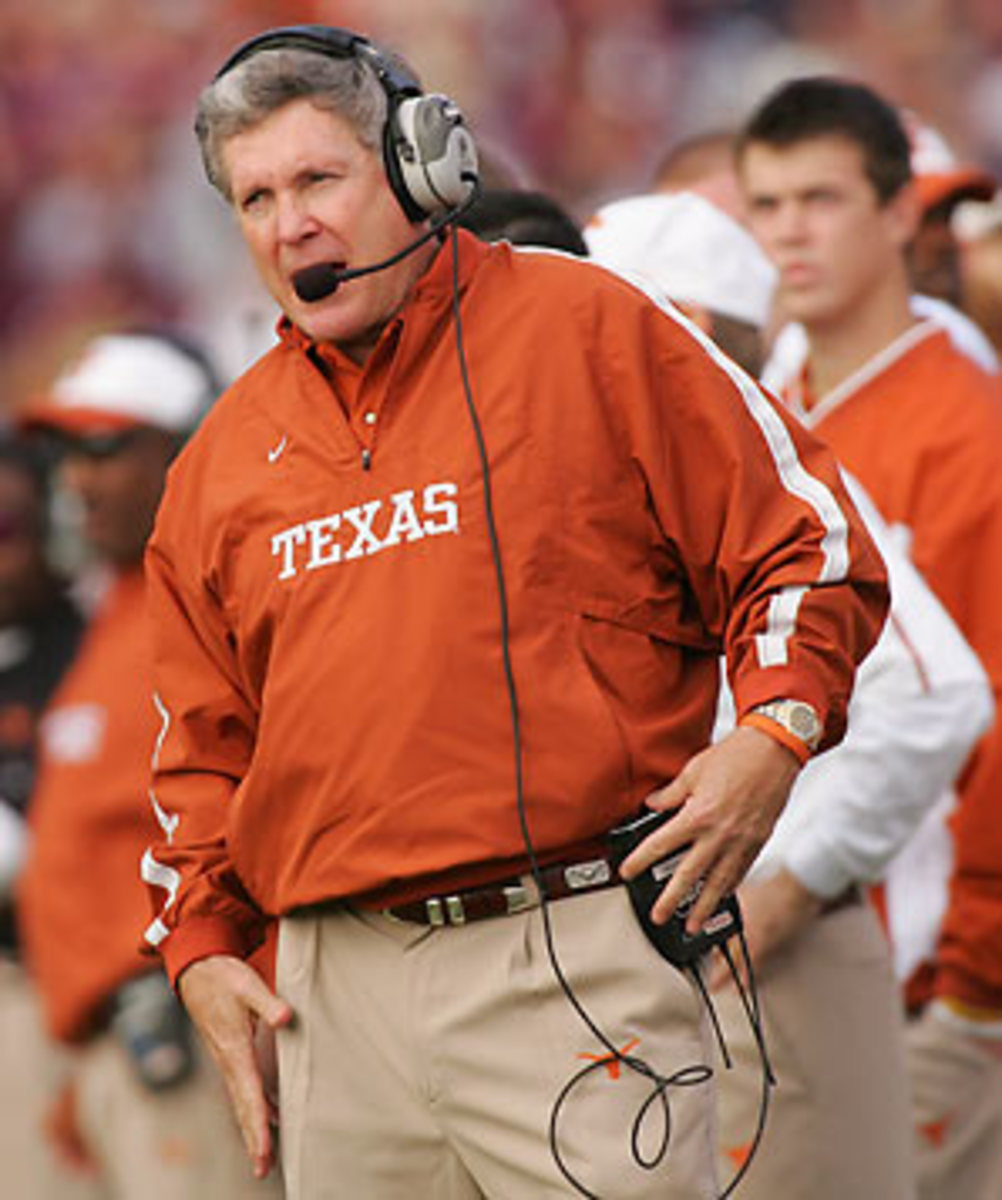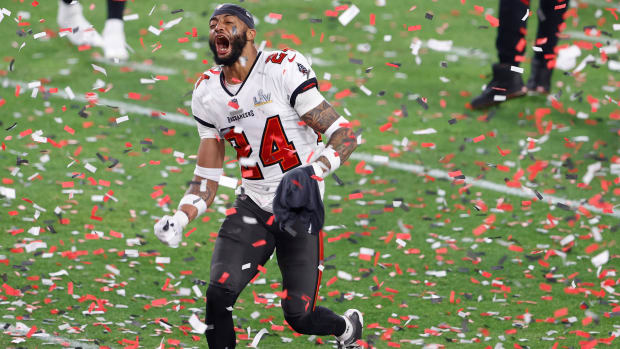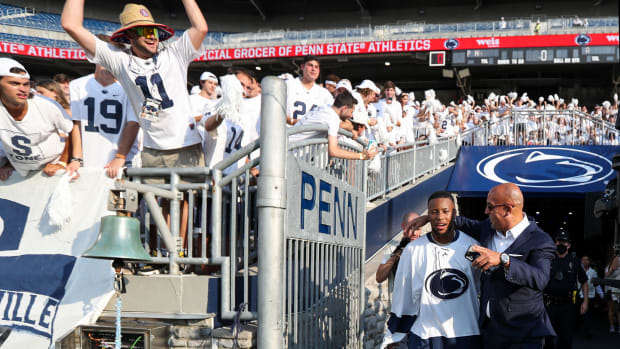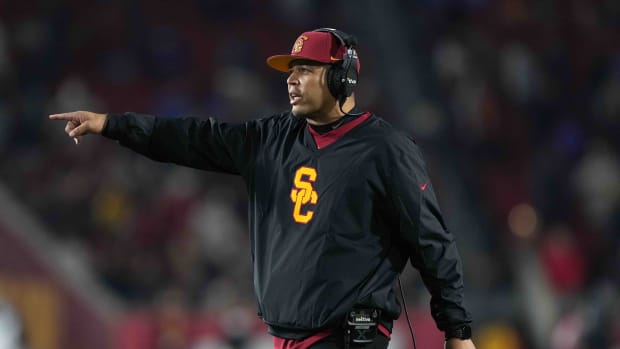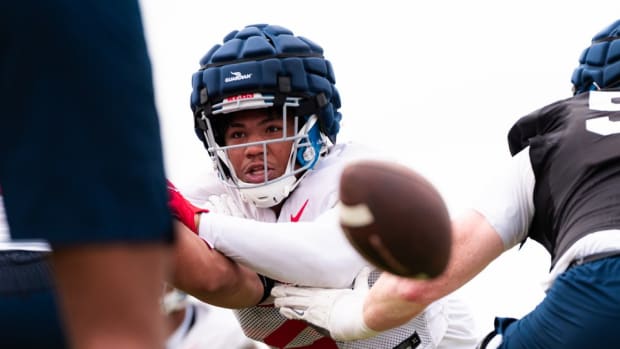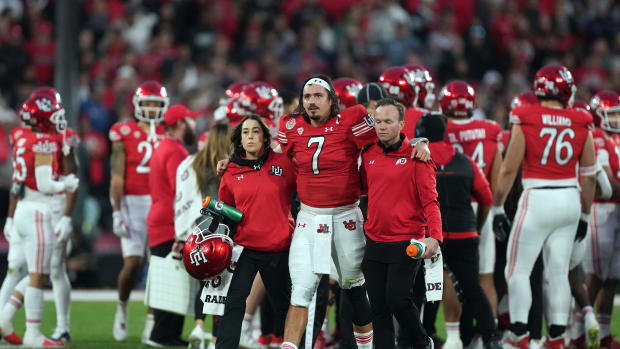Unheard of 10 years ago, recruiting underclassmen now the norm
When Arizona State recruiting coordinator Matt Lubick walks through the doors of schools in California's "Inland Empire," he's not just there to scout prospects in the current recruiting class. Before he leaves, Lubick makes sure to scoop up information on juniors -- and also sophomores and even freshmen.
The practice of looking that far ahead was almost unheard of 10 years ago. Most coaches would use the NCAA's allowed evaluation period from April 15 through May 31 to make most of their early assessments on junior prospects. A select few junior prospects might earn a scholarship offer then, but looking at sophomores and freshmen almost never happened.
But the future has become the present, and more and more schools have pushed the fast-forward button on their recruiting classes.
Texas coach Mack Brown has ventured into uncharted territory by snagging commitments from 20 players by the first week in March. This is a number that's breaking new ground even for the guy who's been dubbed "Coach February" for past early recruiting conquests.
Florida has already received commitments from seven highly regarded prospects. Two years ago, Florida's first commitment came in mid-April, and the Gators didn't receive their seventh commitment until late September. Last year, Florida had one commitment in March and didn't get its seventh until late September.
The Rivals.com recruiting database shows that Tennessee has sent out scholarship offers to more than 100 prospects nationally. Schools such as Washington, Ole Miss, Auburn and Arizona also have a high number of scholarship offers listed.
Even Bill Snyder, who preferred to do his recruiting after the season in his first run as Kansas State coach, has gotten into the early offer game now that he's in charge again in Manhattan.
"When you go out and recruit in May, you're always trying to recruit at least a year ahead," Lubick says. "When I first got started recruiting, May was when guys would generate the lists that we're going to recruit off of in the fall and guys that are going to sign for that year. But now it's at the point where you're always recruiting a year ahead.
"When we go out in May, that's where we make a big push to get as many sophomores and freshmen evaluated and into our database and start the tracking process."
Coaches say that early tracking process explains why 850 prospects in the Rivals.com database have received scholarship offers before they've even started their spring breaks. The offer claims aren't 100 percent accurate, as prospects sometimes exaggerate interest from schools or misunderstand the way scholarships are offered, but there is no question more players than ever before have written tenders in hand.
"When you are really organized and you are doing your evaluations, these guys pop up," Tennessee recruiting coordinator Ed Orgeron says. "When you are watching a guy who is going to be a senior, you are always looking at the best players and you ask the coach who the guy is. It kind of started like that. If we feel we have enough information, then we are going to offer him whether it is early or late. This is a year-round process for us."
Notre Dame recruiting coordinator Rob Ianello, who has been a member of Rivals.com's national top 25 recruiters list in each of the past six years, says it's that year-round process that has caused more and more coaches to push for an early signing period.
"There are a number of kids who are committed and it's in early March," Ianello says. "By the time you go to your spring game, there will be more guys committed. We've got one school in the country with 20 commitments already.
"What disappoints me as chairman of the AFCA Football Bowl Subdivision Coaches Committee is that the early signing date was so dramatically voted down. That's very disappointing to me from the standpoint we accelerated this entire process and we've almost decided to not acknowledge that. You can't deny this whole process is so much more different than what was going on even five years ago. More and more offers are being made, and there's no denying it."
While each school has a process for handing out early scholarship offers, there are some common trends that most follow. The most basic step is a thorough film evaluation, but most schools take it far beyond that.
"In the early stages, the high school coach is the greatest resource," Lubick says. "If the high school coach doesn't endorse the guy with the things we're looking for -- work ethic, character and the things that can help your team -- then the process stops right there. The next thing [is he] has to be a standout on film. Whatever position he's being recruited at, he has to do or have three things -- be a playmaker and have speed and toughness. It might not be necessarily in that order, but those are three characteristics that we look for in every position. He has to have those three qualities and then you have to look at academics.
"You have to get a transcript. With the NCAA requirements getting tougher and tougher each year, you have to have a legitimate shot with the core classes ... and have a shot at making it. If he has all those things and he's in good shape, then you can feel more confident about an offer."
Ianello says a player has a better chance of getting an early offer if the coaches have seen him in person at some athletic event or on their campus for a "Junior Day."
"I think obviously the academic component here at Notre Dame and the physical evaluation and then talking to the high school coach are keys," Ianello says. "Those three components have to be in place for us to have offered a guy a scholarship. If we've seen a guy play, seen a guy play basketball or he's been to our campus and we've physically seen them, that factors into an early offer."
In the end, most coaches say it comes down to what they see on film.
"We have a process here," says Orgeron, who was named Rivals.com's Recruiter of the Year when he was an assistant at USC. "We make evaluation tapes of guys. ... It has to be what I deem to be good tape. We have to watch a certain amount of plays. We have to see the recruit do a certain amount of things to see him fit in our system."
Early recruiting isn't without risks, though.
Many people point to Penn State coach Joe Paterno as the originator of early recruiting. Coming off 11 consecutive winning seasons in the late 1990s, Paterno had his staff identify the best underclassmen in their recruiting areas and pushed hard to get them on campus for "Junior Days." Those events eventually led to early commitments from a significant amount of players in multiple recruiting classes.
But the staff didn't do a good enough job of evaluating those younger players, and the Nittany Lions suffered through a stretch where they only had one winning season from 2000-2004. Many Nittany Lions insiders point to the early recruiting approach as one of the biggest reasons for those struggles.
A Big 12 recruiting coordinator who asked not to be identified says Penn State's example needs to be heeded when schools hand out scholarship offers early in the process.
"I think there is a real danger with early recruiting because the best and most developed players at 16 aren't necessarily the best and most developed players at 22, and we saw a perfect example of that at Penn State," he says. "You have to really make sure you do your homework and are confident that the offer you're making is going to be the best thing for your program not at this moment but in the future, when they are juniors and seniors and they're the leaders of your program."
That same assistant says he's noticed several programs being ultra-aggressive over the past few months and went as far as to say the programs were "handing out offers like candy."
"I'm talking about schools like Auburn, Arkansas, Tennessee and Ole Miss," he says. "It's impossible to be able to really make as many early evaluations and offers as these guys have done and know exactly what you are offering. There's no way they've done their homework and actually seen more than a game tape or a highlight tape on a kid.
"I think they're going for the scorched-earth type of approach to recruiting: 'Let's get as many guys committed to us early on and then we'll figure out if they're any good later on.' They're not worried about burning any bridges with high school coaches or the ramifications that might come if they drop a kid late in the process because they might not never recruit at that school again. It's a risky game."
It's also a tactic that has proven successful for Orgeron and schools such as Auburn, Arkansas and Ole Miss.
Orgeron has a successful track record as an ace recruiter at USC, as the recruiting coordinator who helped Tennessee rally to sign one of the nation's best classes this year and as the coach who helped Ole Miss sign some of its highest-regarded groups in history. Plus, Auburn, Arkansas and Ole Miss each signed top-20 recruiting classes this year.
"We trust our own evaluations," Orgeron says. "We have offered guys already that no one else has offered. We have offered guys that other teams have offered. That doesn't matter to us. We trust our own evaluation and our own staff. That is why we were hired."
Whether the gamble is worth it, there's no denying the process has speeded up, and it's causing schools nationwide to re-examine how they recruit.
"I hope it doesn't ever get to the point where we're looking at seventh- and eighth-graders, like they do in basketball," Lubick says. "But this whole early recruiting process has changed the way that everybody operates, so that someday might not be out of the question."
